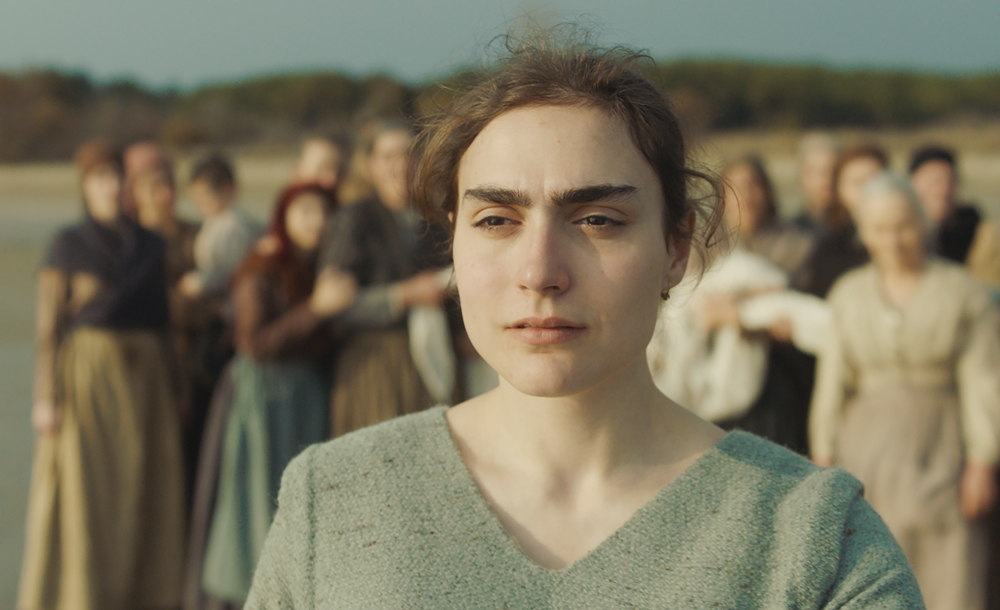It’s a long walk to see Ignac, or at least it feels that way for Agata (Celeste Cescutti) in “Piccolo Corpo,” despite the fact that they both live in the same small seaside encampment in Italy. She’s been tipped off by the local priest’s housekeeper that Isgur may know of how to best send her daughter into the afterlife after being stillborn, and her husband Mattia refuses to join her, believing they will have more children and the priest won’t christen the child if it never had a breath in its body, making Agata think its soul will remain in limbo if nothing is done. A woman of few words anyway, she doesn’t tell anyone she’s leaving town after Ignac informs her of a place where it’s said stillborn babies are awakened and though she only gets a few feet away from the riverbank, a small coffin strapped to her back, before hearing her name called, it’s enough of a head start to ensure she won’t have to look back.
Without a proper baptism, Agata can’t name her child, which is of even greater concern than its prospects in the here after in Laura Samani’s gripping narrative feature debut, which itself feels as it’s giving shape to history that was long denied a proper name. Set at the turn of the 20th century when the major cities are beginning to benefit from the relatively new invention of the light bulb, “Piccolo Corpo” tells of a journey that seems far more arduous than it should be when Agata’s desire to simply have her child acknowledged is summarily dismissed, leading her on an unforgiving cross-country trek she might not make it back from. Still able to produce milk, she is picked up by Lynx (Ondina Quadri), a miscreant who initially promises her a wagon ride to the North, omitting the detail that she would be committed to serving as a wealthy family’s nurse, but those plans are literally upended when the wagon is robbed and its leader takes pity on Agata after learning of what’s in the small wooden box she clings onto so tightly.
After they get away, there’s no one but each other for Agata and Lynx to rely on in the vast wilderness and they have more in common than one would think, unable to fit into their communities that would rather sweep under the rug anything or anyone that was out of line. Although there’s something agreeably old-fashioned about how “Piccolo Corpo” unfolds in such a straightforward and emotionally direct way, the film feels entirely contemporary in its perspective, illuminating how the duo at its center have nothing left to fear when they’ve been so marginalized by society, with Agata in particular barely considered by her husband who buries their child before she even regained consciousness after a difficult birth and her priest who fails to see the point in honoring the nine months she spent carrying the baby to term. This fresh lens extends to Mitja Licen’s splendid cinematography, tracking Agata and Lynx through caves lit strictly with torchlights and a river surrounded by snow-capped mountains, all simultaneously intimidating and entrancing, something that might also be said for the film’s captivating stars Cescutti and Quadri, all of which suggests that it has been of greater detriment to others than themselves that Agata and Lynx have been overlooked.
“Piccolo Corpo” will screen at Cannes as part of the Semaine de la Critique on July 10th at 5 pm and 10:30 pm at the Miramar and July 11th at 8:30 am at the Miramar and 6 pm at Studio 13.




